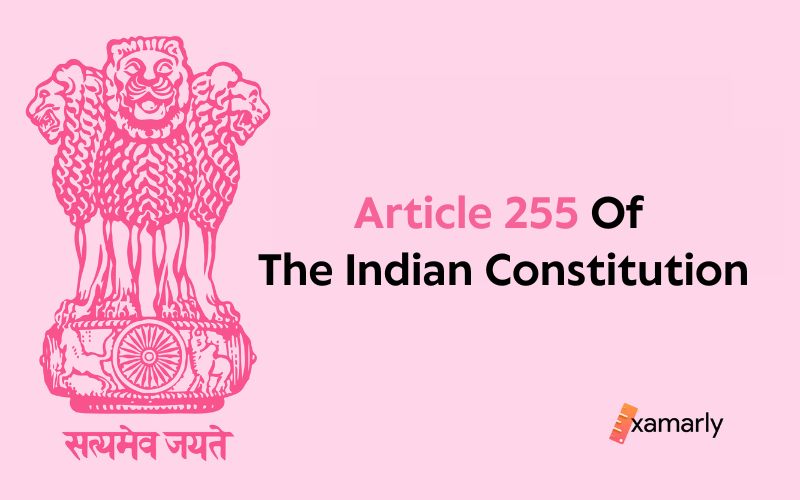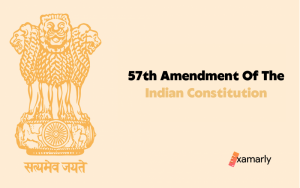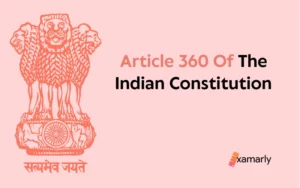Article 255 of the Indian Constitution talks about the enactment of a law in relation to the President’s recommendation on it.
It talks about how will a law or an Act be processed further if a prior recommendation is not there.
Let us dig deep into Article 255 of the Indian Constitution and get an in-depth knowledge of what is being said and done.
Article 255 Of The Indian Constitution – In Detail
We will break down all the clauses and subclauses present in it to have an in-depth understanding.
Clause – As it is & Explained
255. Requirements as to recommendations and previous sanctions to be regarded as matters of procedure only No Act of Parliament or of the legislature of a State and no provision in any such Act, shall be invalid by reason only that some recommendation or previous sanction required by this Constitution was not given, if assent to that Act was given(a) where the recommendation required was that of the Governor, either by the Governor or by the President;
(b) where the recommendation required was that of the Rajpramukh, either by the Rajpramukh or by the President;
(c) where the recommendation or previous sanction required was that of the President, by the President CHAPTER II ADMINISTRATIVE RELATIONS General
The clause present in Article 255 of the Indian Constitution says that no Act of Parliament or of the legislature of a State, nor any provision therein, shall be unconstitutional only because some suggestion or previous sanction needed by this Constitution was not given. If approval of that Law was granted
a) where the Governor’s recommendation was needed, the Governor or the President;
(b) the Rajpramukh or the President, if the Rajpramukh’s recommendation was necessary;
c) when the President’s suggestion or prior sanction was necessary, by the President CHAPTER II ADMINISTRATIVE RELATIONS General
Related – Article 198 of The Indian Constitution
Summing Up
We can conclude from Article 255 of the Indian Constitution that just because prior approval has not been taken from the President of India or the Governor, that will not nullify an Act or a Law.
Ultimately, after all the procedures an Act or the law has to be sent to the President for Assent and it can always be reviewed by the President at that time.
FAQs
What is assent to an act or law?
An assent to an act or law is the formal approval given by the head of state (such as a president or monarch) to a bill passed by a legislative body (such as a parliament or congress). This assent is usually required for the bill to become law.
How is assent given to an act or law?
The process for giving assent to an act or law varies depending on the country and its system of government. In some countries, the head of state may simply sign the bill into law. In other countries, the head of state may have the option to veto the bill, in which case it may be returned to the legislative body for further consideration or may be passed into law with a two-thirds majority vote.
Can an assent be withheld from an act or law?
In some cases, the head of state may choose to withhold assent from an act or law. This is known as a “veto” and may occur if the head of state believes the act or law is not in the best interests of the country or its people. Veto powers may be absolute (meaning the head of state has the final say on whether a bill becomes a law) or may be subject to override by the legislative body (meaning the bill can still become a law if it is passed again with a certain majority vote).
What happens if the assent is not given to an act or law?
If assent is not given to an act or law, the bill will not become law. In some cases, the legislative body may choose to revise the bill and resubmit it for assent. In other cases, the bill may be abandoned.






